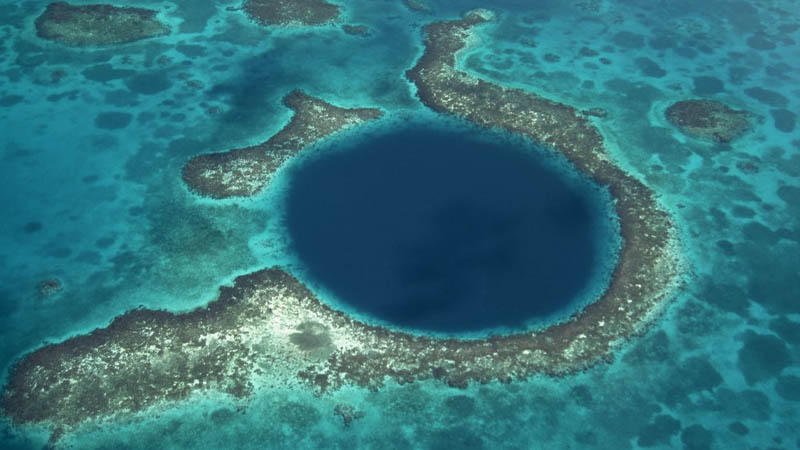Blue holes are some of the most mysterious geological phenomena on Earth. These underwater caves, formed during the Ice Age, became sinkholes as ice caps receded and water levels rose. When these holes filled with water, they created fascinating underwater pits that have long intrigued scientists and researchers.
Blue holes can be found around the world, with one of the largest located in the South China Sea. However, the Bahamas boasts the highest concentration of these geological wonders. Over 200 blue holes surround the country’s largest island, Andros, but the most perplexing is found southwest of Andros around Long Island.
Dean’s Blue Hole, named after a Bahamian fisherman, is a remarkable marine formation located in a protected bay west of Clarence Town. Measuring a staggering 663 feet deep, it is the third-deepest blue hole in the world—most blue holes are only half as deep. Due to its immense depth, free divers have broken world records in its waters, and local legends even suggest it’s a portal to hell.
Although scientists have estimated its depth, no human has ever reached the bottom. Guillermo Söhnlein, co-founder of OceanGate, aims to change that. Söhnlein, who left OceanGate in 2013 before the company’s submersible implosion that claimed five lives (including co-founder Stockton Rush) while exploring the Titanic wreckage, now leads Blue Marble Exploration, a company focused on exploring the world’s most unreachable parts.
Söhnlein’s mission differs from last year’s tragic implosion in several ways. Dean’s Blue Hole, while deep, is not nearly as deep as the Titanic, which rests at 12,500 feet below the surface. However, exploring Dean’s Blue Hole presents its own challenges, including the potential discovery of human remains from divers who have perished there. In 2013, American freediver Nicholas Mevoli died while attempting a world record at the Blue Hole.
According to Blue Marble Exploration’s website, the team plans to conduct “the first comprehensive scientific survey of the area” using remotely operated vehicle technology. Söhnlein confirmed with The Independent that the expedition will feature only trained professionals and scientists, not tourists. The exact start date of the expedition remains unknown.
While the prospect of exploring the “portal to hell” is thrilling, it pales in comparison to Söhnlein’s other ambitious plans, such as a 1,000-person expedition to start a colony in the atmosphere of Venus, another place often described as a “virtual hell.”
As the team prepares to uncover the mysteries of Dean’s Blue Hole, this expedition promises to shed light on one of Earth’s most enigmatic underwater formations and possibly rewrite what we know about these geological marvels.



